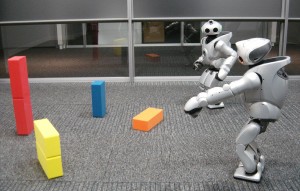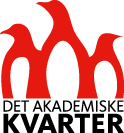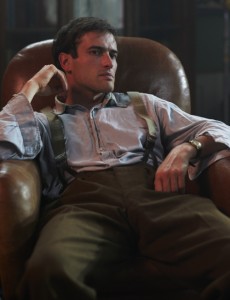Speaker: Luc Steels, CSIC-UPF Barcelona and director Sony CS Laboratory Paris.
Title: Can Machines Be Creative Enough To Invent Their Own Language?
Time: Monday 5th of November at 18:00
Place: Egget, Student Centre
Followed by debate with Terje Lohndal, “the Mozart of linguistics”.
For the past decade, I have been doing experiments with my team trying to see in how far we could program a group of robots to autonomously create and learn from each other a symbolic communication system with similar properties as we find in human languages. We have managed to do some breakthrough experiments showing the emergence of lexicons for colour, space, and actions with robots playing language games and have made significant headway on the question of the emergence of grammar. This talk shows through some stunning video clips what we have been able to achieve and discusses what this tells us about the nature of our own intelligence, the mechanisms underlying cultural evolution and the future of artificial intelligence.
Luc Steels is an ICREA research professor at the Institut de Biologia Evolutiva (CSIC-UPF) in Barcelona and director of the Sony Computer Science Laboratory in Paris.
Terje Lohndal is an associate professor in linguistics at NTNU.
Marcus du Sautoy, Simonyi professor for the public understanding of science and a professor of mathematics at the University of Oxford has the following to say about our next speaker, Luc Steels, in the Guardian feature story AI robot: how machine intelligence is evolving:
For me one of the most striking experiments in AI is the brainchild of the director of the Sony lab in Paris, Luc Steels. He has created machines that can evolve their own language. A population of 20 robots are first placed one by one in front of a mirror and they begin to explore the shapes they can make using their bodies in the mirror. Each time they make a shape they create a new word to denote the shape. For example the robot might choose to name the action of putting the left arm in a horizontal position. Each robot creates its own unique language for its own actions.


